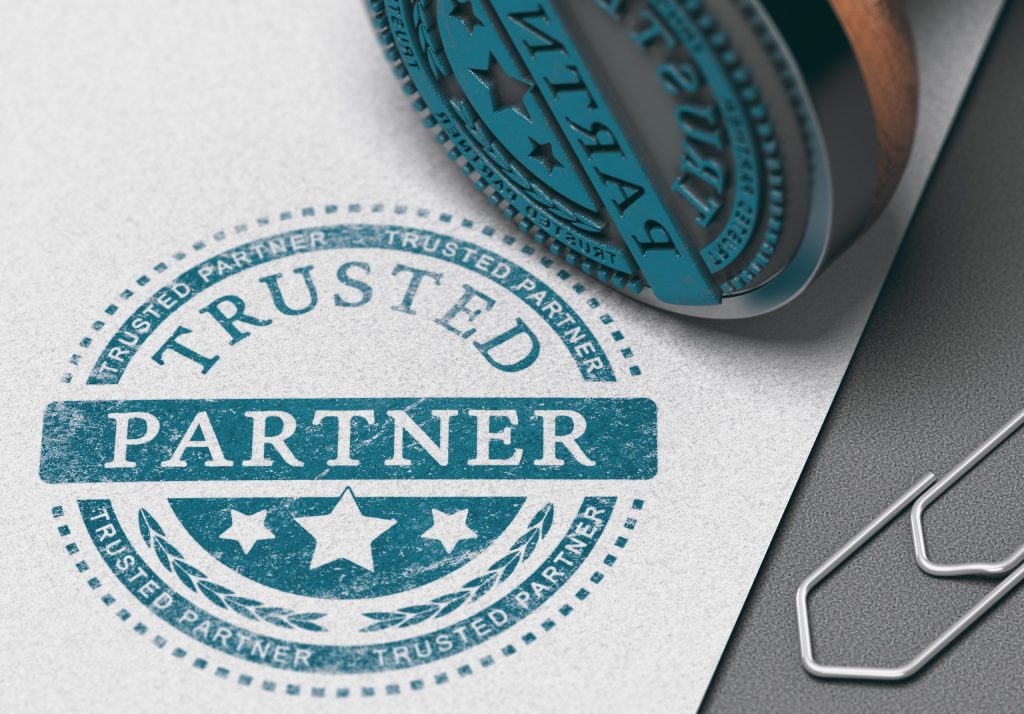by Kent Johnson, J.D., Senior Corporate Advisor, Religious Freedom & Business Foundation
Part of the blog series, Authenticity & Connection
Distrust eviscerates our companies’ efficiency and profitability; but its most damaging effects are in the way it tears at the hearts and souls of people. Faith and belief has much to offer to address the destructiveness of distrust.
We worry:
-
— Did our suppliers exaggerate the capabilities of their offerings? Will they cheat us when it seems they can get away with it?
-
— Did our coworkers cut corners when nobody was looking? Will they unfairly criticize our work or grab unwarranted credit for our labor in order to advance their own standing?
-
— Are our leaders and colleagues influenced more by their biases and self-interest than by facts and principles of fairness?
To be sure, distrust is sometimes founded on concerns about facts such as a company’s lack of knowledge or ability to perform. But, very often, distrust relates to matters of the heart… (indeed – bear with me – matters that are profoundly spiritual). Distrust is often founded on a fear or presumption that “they” don’t really care about “me.” They don’t care that their missteps might cause trouble for others. Consequently, I can’t count on them to fix things that may go wrong, and I worry that they may renege on their commitments, or that they’ll take unfair advantage of my dependence on them when they can get away with doing so.
The tenets of our employees’ faiths and core beliefs provide a rich trove of wisdom and motivation for earning and recovering trust. This blog installment provides just a cursory sampling of some of that wisdom. Much, much more can be said.
Princeton’s David W. Miller, PhD and Michael J. Thate, PhD recently published a thought-provoking and practical piece – “Towards a Restoration of Trust” – which spotlights 11 themes from the “Abrahamic” faiths: Judaism, Christianity and Islam. [I’d submit that similar themes can be found in nearly all religions.] They wrestled with the question: “Can a company restore trust with its customers, regulators, and other stakeholders— especially if the organization has a product that has caused damage and a checkered history that is etched in people’s minds and experiences?”
Five of the faith-related themes Miller and Thate identified are bolded below. (I’ve added emphasis and a few concise reflections for our purposes). Their entire article is worth reading.
-
(1) “Practices of transparency which enact and communicate system-wide contrition while also inviting offended parties back into relationship.” Humble, sincere and open acknowledgement of mistakes and wrongdoing is a strong step toward reconciliation and trust. This envisions a corporate culture that encourages both corporate and personal turning from past errant behavior, and commitment going forward to act differently and to be different in the future.
-
(2) “Practices of care for self and other.” This theme echoes the principle, shared by nearly all faiths, that it is “right” to treat others as we ourselves would like to be treated.
-
(3) “… a move away from a contractual mindset toward a covenantal mindset.” This theme highlights the benefits when trustworthy behaviors are motivated by heartfelt values and beliefs, and not motivated solely by pressure to conform to externally-imposed rules.
-
(4) “Honesty about an institution’s ideals.” In this, the writers advocate a purposeful effort to shape corporate culture so that it transparently articulates its core ideals, consistently seeks to conform their behaviors to those ideals, and rejects hypocrisy of all kinds.
-
(5) “…account[ing] for institutional and personal fallibility. This point reflects on the need – acknowledged by many faiths – for deep institutional and personal humility; and for means of accountability and appropriate forgiveness.
As a compliance lawyer, I often reflect on what it would take for an organization to earn and keep trust after a “fall,” whether it takes the form of fraud, or neglect, or any other act or omission involving moral turpitude. Clearly, a reputation for trustworthiness is not achieved merely by managing an organization’s public “image.” It’s more than making the company look good. In the short term, perhaps a reputation can be buffed up by a public relations campaign… but without something deeper, the “image fix” inevitably falters. True trustworthiness is a profoundly personal and spiritual matter.
The world yearns for business relationships characterized by deep trust; for employees and leaders who can be relied upon to do the right thing when nobody’s looking; for business partners they can count on when difficulties arise; for organizations and people who truly care about the needs of their customers and other stakeholders.
No organization is perfect. We all need a way to recover lost trust. Our diverse faith traditions – and the core values of atheists – have much to offer on this topic, if only we will open the door for them to speak… and if only we will listen to one another. We at the Religious Freedom and Business Foundation hope you will open that door to dialogue about faith and belief; and in so doing, that you will help address the world’s dire need for authenticity, connection and trustworthiness.
It’s possible to overcome distrust. It’s happening. Come on board.

